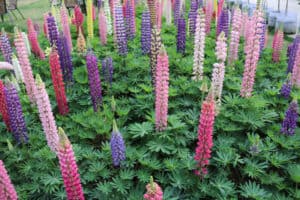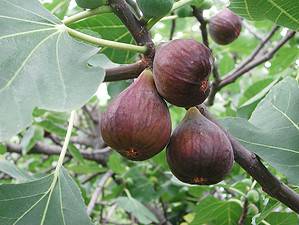Those ugly, creepy, crawly nasties … spiders. Not everyone hates them, of course, but even if you love those many-eyed creatures, they can still cause problems when they get indoors, primarily spider bites, which can range from minor irritation to a potential health scare, for you and your pets.
So, how do you keep spiders out of the house? You can use pesticides, but often they are toxic to kids and pets. Plants, on the other hand, can provide natural repellents without the chemicals.
The plants below are some of the best for keeping away those creepy, eight-legged beasts.
Plants That Repel Spiders
If you need to rid your home of spiders, consider these plants to send them scurrying:
- Eucalyptus
- Lavender
- Marigolds
- Mint
- Basil
- Citronella
- Chrysanthemums
- Rosemary
- Lemon Balm
Eucalyptus
Growing happily in Zones 8 to 11, eucalyptus plants are one of the best natural spider repellents in the world. The crushed leaves give off a menthol-like smell that the spiders hate!
Eucalyptus plants can be grown indoors or outdoors in the right zones, in full sun in well-drained soil, which the plants prefer slightly acidic. Water the soil when it feels dry and keep the plants in sunny spots indoors for best results.
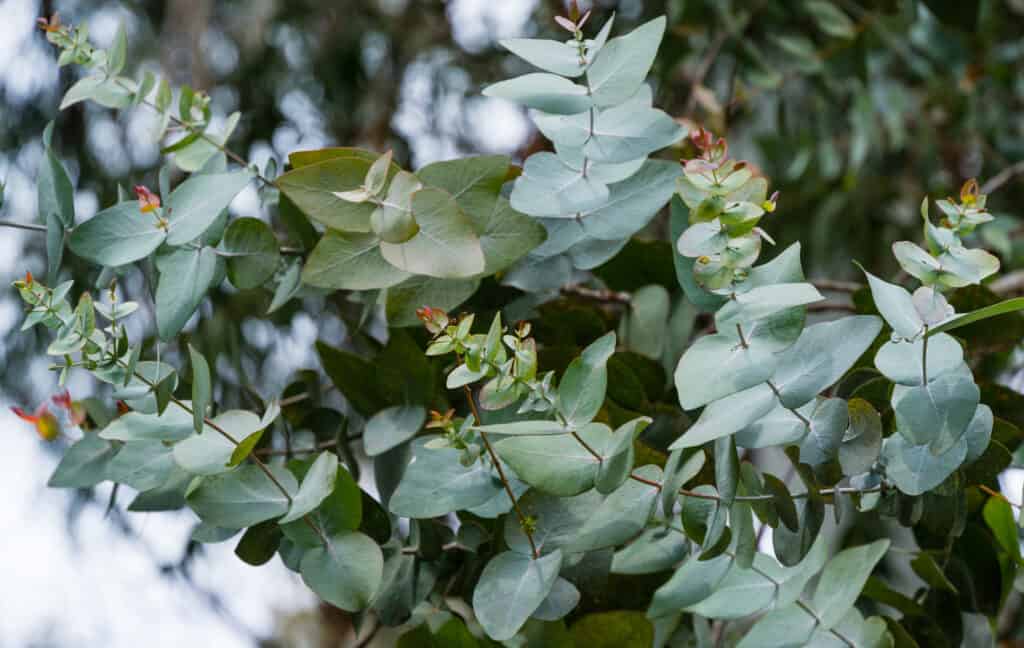
Crushed eucalyptus leaves give off a menthol-like smell that spiders hate!
©iStock.com/Marina Denisenko
Lavender
Lavender isn’t just a soothing scent to help you drift off to sleep at night. It also provides a powerful aroma that spiders and other arachnids and insects hate.
For indoor growing, keep lavender plants in containers with solid drain holes. For outdoor lavender, full sun and well-drained soil are a winning combination. Lavender does better in arid climates than humid ones. Depending on the variety, lavender is hardy in Zones 5 to 9.
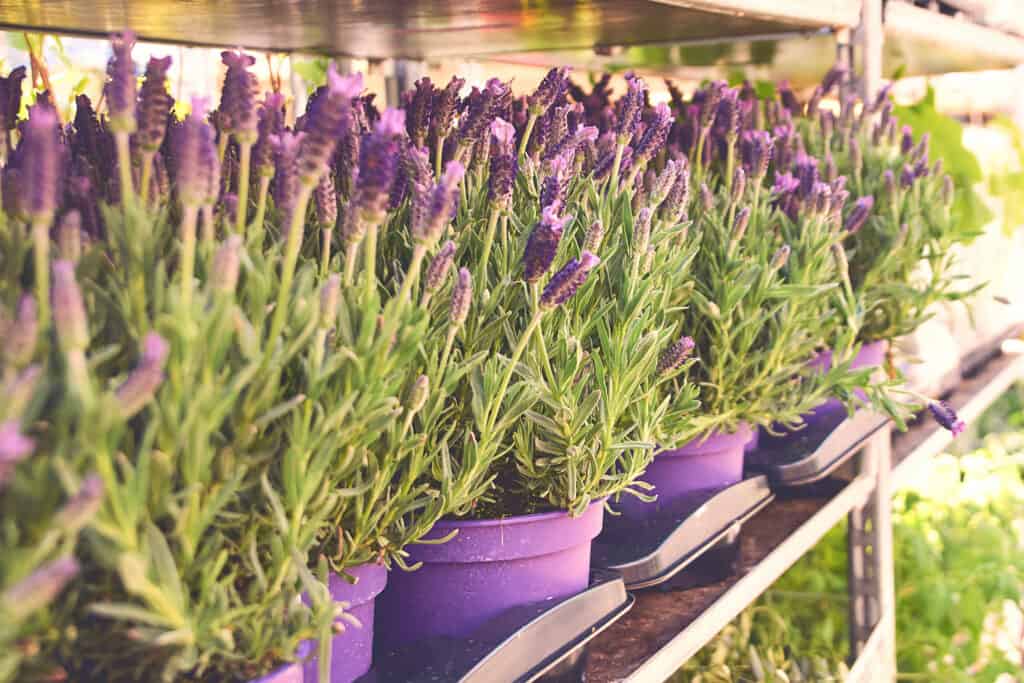
For indoor growing, keep lavender plants in containers with solid drain holes.
©iStock.com/Berezko
Marigolds
Perhaps one of the more popular pest repellents is the marigold. The flowers are gorgeous (and actually edible, though you should always consult an expert before consuming them!) and spiders hate them.
The stronger the scent, the stronger the repellent, too, so look for strongly-scented Mexican marigolds to ward off spiders. The flowers themselves aren’t what give off the fragrance, but rather the leaves, so as long as the plant is alive it’s working its magic!
Marigolds will grow practically anywhere (Zones 2 to 11) and grow from 1 inch to 3 feet tall. Marigolds will thrive in full sun and alkaline soil.
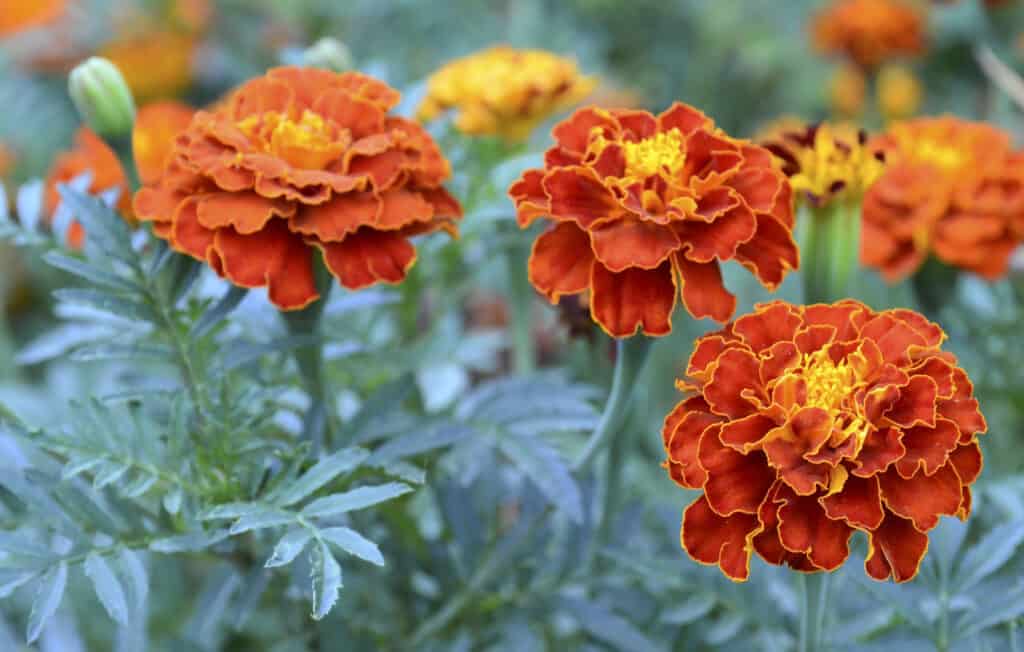
Marigolds’ flowers aren’t what give off the fragrance, but rather the leaves, so as long as the plant is alive, it’s working its magic!
©iStock.com/svf74
Mint
If you love the idea of growing your own herbs at home, you’re in luck. Mint helps keep spiders away. Peppermint is the best choice for this purpose, being the most potent of the mints.
Be sure to plant your mint in well-draining soil in sunny spots (or sunny windows!) to keep the plant healthy. Outdoors, mint grows well in Zones 3-8. Anywhere outside these zones, it’s best to keep the mint in containers and move them indoors during extreme hot or cold weather.
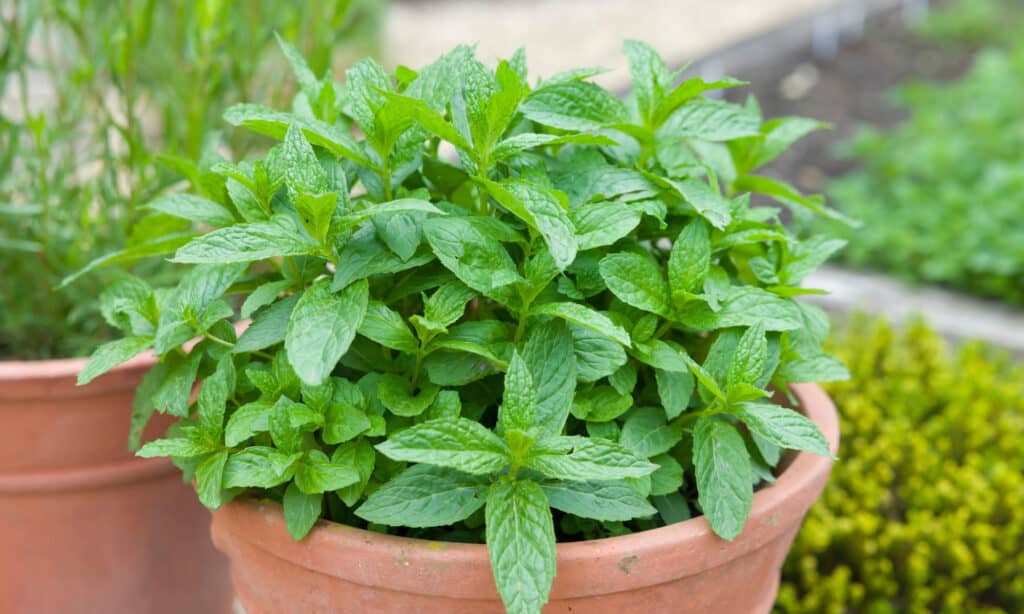
Plant your mint in well-draining soil in sunny spots (or sunny windows!) to keep the plant healthy.
©Paul Maguire/Shutterstock.com
Basil
Another tasty herbal option for your garden space is basil. This plant is a stunner for sure, but it also helps repel spiders and other pests who hate its intense smell and flavor. Plant the basil in containers and place it near your doors, in the kitchen, or in trouble areas of the garden for best results.
Basil grows in Zones 10 to 11 outdoors, so it’s a pretty limited region for ground gardening. The plant does best in warm, sunny weather, so provide it will plenty of light and water to keep your basil plants healthy and happy, and move them indoors when the weather starts to cool off.
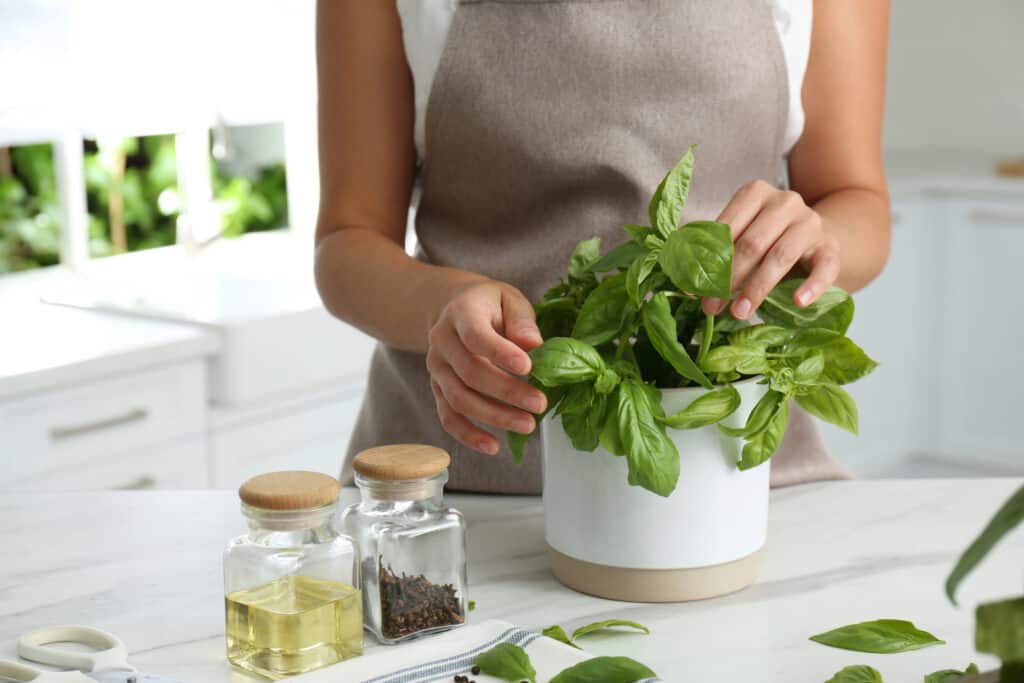
Plant basil in containers and place it near your doors to keep spiders at bay.
©iStock.com/Liudmila Chernetska
Citronella
If you’ve ever gone camping, you’re likely to be familiar with the scent of citronella and its natural mosquito repellent qualities. Citronella also happens to contain oils that spiders hate. A few citronellas planted near doorways and windows will keep spiders at bay.
The plant gives off a little aroma that will be pleasant if you crush the leaves, but otherwise, you won’t even notice the smell. Spiders, however, will notice and stay away.
Citronella is a perennial in Zones 9-11. If you’re planting it outside of these zones, go with pots so you can move them indoors during cold weather. The plant does require a long growing season, too, with plenty of watering and well-drained soil.
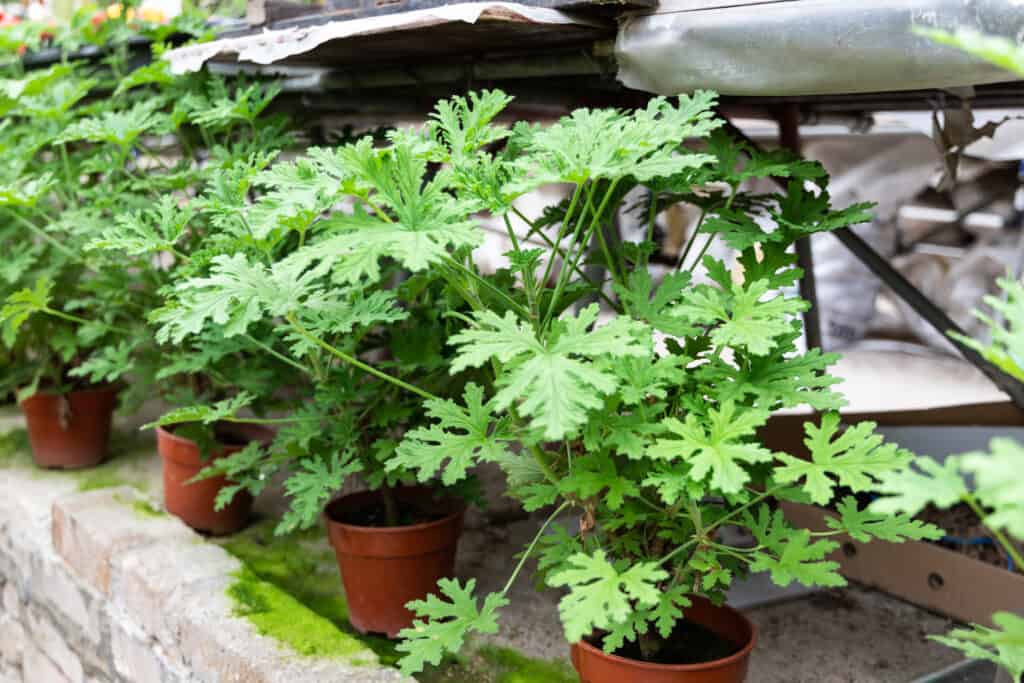
Citronella is a natural spider repellent.
©iStock.com/ThamKC
Chrysanthemums
For a flowering choice to keep spiders away, consider chrysanthemums, or mums. These beautiful blooming plants contain a natural repellent called pyrethrins, which is an active ingredient in many natural pesticides.
Chrysanthemums grow well in Zones 5-9, in indirect sun or partial shade; these slightly finicky flowers don’t do well with too much bright light.
It’s the flowers, by the way, that repel the spiders, not the leaves, so be certain sure to deadhead to keep the plants producing: more blooms equals more repellent.
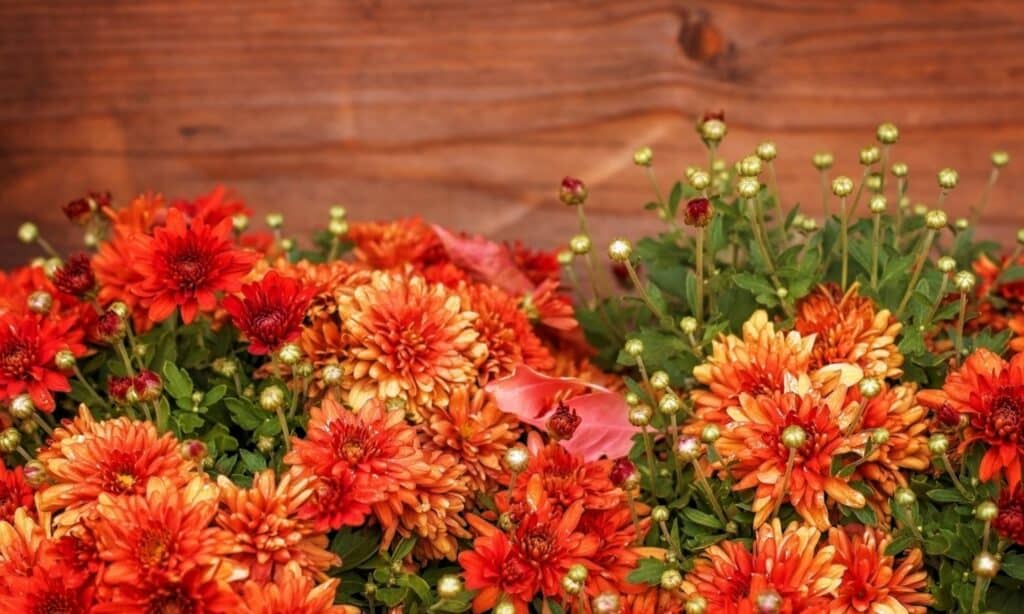
Chrysanthemums’ scented flowers keep spiders away.
©iStock.com/Svitanola
Rosemary
Rosemary is another popular garden herb that repels spiders. Though many humans enjoy the favor and aroma or rosemary, spiders find the scent too intense, and will avoid being around it. For best results, pot some rosemary and keep it around your home’s perimeter.
Rosemary grows in Zones 6 to 11, and is frost hardy and freeze tolerant. The plant prefers sandy, loamy, well-drained soil and infrequent waterings.
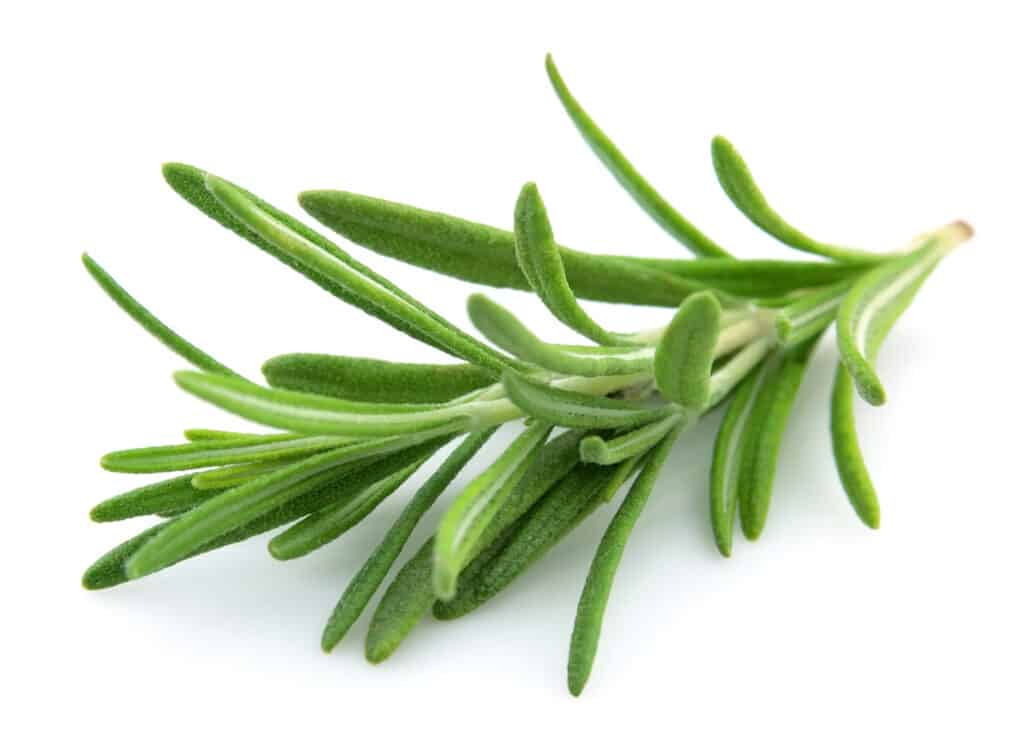
Though many humans enjoy the flavor and aroma of rosemary, spiders find the scent too intense and will avoid being around it.
©iStock.com/Volosina
Lemon Balm
Lemon balm is an excellent choice for warding off spiders. This particular herb is a hardy perennial that grows well in containers. Be aware that when planted in the garden, lemon balm can be quite aggressive.
Lemon balm requires partial shade, along with moist, well-drained soil, and grows best in Zones 3 to 7. Keep the plant indoors during the winter to keep the creepy crawlies away.
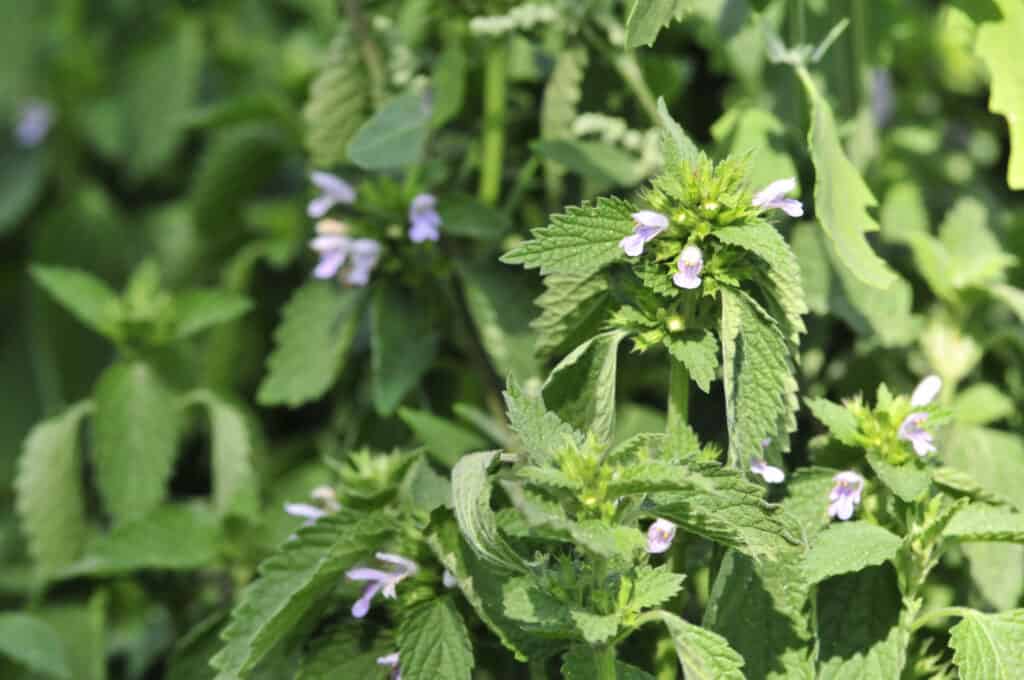
Lemon balm is an excellent choice for warding off spiders.
©iStock.com/petrovaliliya
The photo featured at the top of this post is © iStock.com/Valeriy Lushchikov
Sources
- the spruce, Available here: https://www.thespruce.com/plants-that-repel-spiders-5210893
- housebeautiful, Available here: https://www.housebeautiful.com/uk/garden/plants/g37619305/plants-repel-spiders/
- glimour, Available here: https://gilmour.com/growing-chrysanthemum
- usu.edu, Available here: https://extension.usu.edu/yardandgarden/research/lemon-balm-in-the-garden
- vegogarden, Available here: https://vegogarden.com/blogs/articles/how-to-grow-lemon-balm
- the spruce, Available here: https://www.thespruce.com/citronella-grass-plant-profile-5119502
- thehabitat, Available here: https://thehabitat.com/garden/what-to-consider-when-growing-peppermint/
- glimour, Available here: https://gilmour.com/growing-chrysanthemum
- worst.edu, Available here: http://npic.orst.edu/factsheets/pyrethrins.html
- thespruce, Available here: https://www.thespruce.com/plants-that-repel-spiders-5210893
- tipsbulletin, Available here: https://www.tipsbulletin.com/plants-that-repel-spiders/
Thank you for reading! Have some feedback for us? Contact the AZ Animals editorial team.



